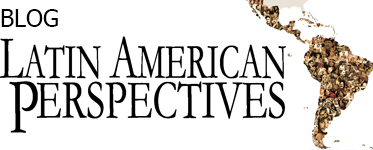Refugees, Indigenous People, Transgenders and Prisoners : Latin American Governments’ Miscommunication with the Most Vulnerable Communities During COVID- 19
By Marcelo Rodriguez and Victoria De La Torre | October 13, 2020 In times of a pandemic, vital information becomes a matter of life and death. However, at a time when civilians need it the most, the overnight transformation of government information into a solely virtual presence has created a plethora of issues as well as even more obstacles to reach the most vulnerable communities. These insecurities have transformed any vital pandemic-related information emanating from the government into a minefield of contradictory, constantly-changing, and at times erroneous messaging. When it comes to vulnerable communities, feelings of mistrust and fear have exacerbated and exposed a pattern of insufficient resources and isolation. We have chosen to concentrate our research on four vulnerable communities in the region: Refugees, Indigenous, Transgender and Prisoners. From the perspective of these four vulnerable groups, we would like to highlight how the new virtual reality of exclusively online government information has left these groups stranded and isolated when they needed these government services the most. The pandemic has essentially halted all global, international migration as borders close, and workers return to their home countries. Over 120 countries have closed their borders all over the world citing Coronavirus as the primary reason, and [...]


